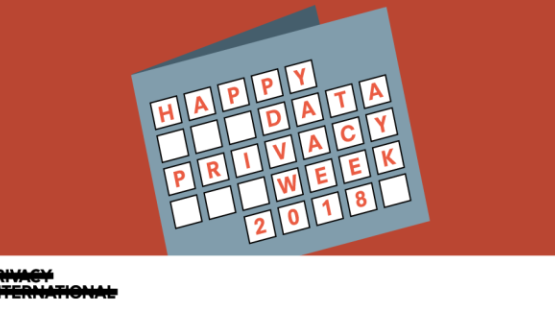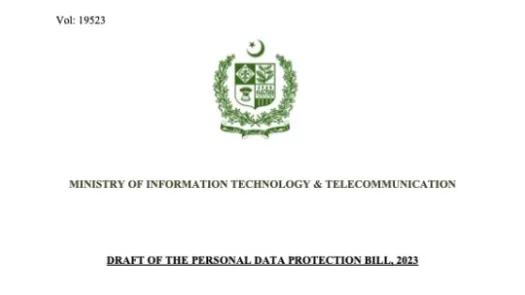Data Protection Day 2018: A Global Perspective To Privacy

It has been almost 40 years since the Council of Europe’s Convention 108 for the Protection of Individuals with regard to Automatic Processing of Personal Data was signed. The Convention was the first binding treaty dealing with privacy and data protection that recognised the necessity to “reconcile the fundamental values of the respect for privacy and the free flow of information between peoples” and is the reason why we celebrate Data Protection Day annually on 28 January.
It has since been ratified by 50 countries across the world. New policies, laws, and treaties have been adopted and implemented in an attempt to catch up with the constant challenges and threats presented by increasingly perceived security threats, innovations in governance and advancement in technology.
The OECD Guidelines were reviewed in 2013, the Council of Europe has undertaken a process to modernise Convention 108, and after almost five years of negotiations the European Commission adopted a new data protection regulation in 2016.
Now 126 countries in the world have national data protection legal frameworks. Yet many countries across the world still do not have comprehensive data protection laws, and in the ones which do there are ongoing challenges with enforcement of the laws and/or failure to uphold the highest data protection standards. Furthermore, many of these countries have a weak rule of law and power dynamics skewed by socio-economic and political challenges which raise additional factors which must be addressed.
Beyond the regulatory developments, there has also been an evolution in the privacy narrative. Gradually, privacy is no longer being perceived and addressed as (just) about confidentiality and secrecy (although, we don’t think it ever was just about these ideas). It’s about power dynamics between the individual, the state, and the market as well as one’s autonomy, dignity, and self-determination. It’s about empowerment, and control of our own information.
For the last decade, Privacy International has been leading an international network of privacy advocates in Asia, Africa, Latin America, and the MENA (Middle East - North Africa) region, to create a global privacy movement. Together we have been building expertise through research to generate educational material, targeted dissemination, and strategies that will support the development and sustainability of this movement, including the protection of personal information in environments that are increasingly data intensive.
To celebrate International Data Privacy Day 2018, we will be sharing a full week of stories looking at the work conducted by the Privacy International Network, to explore how countries are addressing data governance in light of innovations in technology and policy and what are the implications for security, privacy, and the protection of individuals.
Here’s the line up:
Monday: Data, Access, and Control
Exercising our right to privacy extends to our ability of accessing and controlling our data and information, the way it is being handled, by whom, and for what purpose. The findings of research conducted by our partners ADC in Argentina, R3D: Red en Defensa de los Derechos Digitales in Mexico, Dejusticia in Colombia, and Right2Know Campaign in South Africa, illustrate the lack of transparency and accountability of state surveillance apparatus, which disproportionally interferes with the right to privacy of their citizens. This comes with other costs including the facilitating of human rights abuses.
Tuesday: Data and Control
Data protection can be a tool which empowers individuals, the data subjects, but if weak, ill-equipped and ineffective it can turn into a tool of control over citizens. In almost three decades of interventions across the world, Privacy International and our network have observed the discrepancies and shortcomings of data protection in law, policy, and practice. Our partners in India, the Centre for Internet and Society (CIS), Derechos Digitales in Chile, SMEX in Lebanon, TEDIC in Paraguay, Bytes for All in Pakistan and the Asociación por los Derechos Civiles in Argentina have all been exploring issues and themes to illustrate the necessity, relevance, and importance of data protection safeguards and give back control to the individual.
Wednesday: Identity and Power Dynamics
Whilst identity should empower individuals, both state and private actors are imposing an inflexible identity, which is then used in decision-making processes. In such instances, identity becomes a tool of control and exclusion. Through this project, our partners Asociación por los Derechos Civiles in Argentina, Bytes for All in Pakistan, the Centre for Internet and Society (CIS) in India, R3D: Red en Defensa de los Derechos Digitales in Mexico, and the Kenya Legal & Ethical Issues Network on HIV and AIDS (KELIN) in Kenya as well as Privacy International have been researching the implementation, breadth, and complexity of modern, innovative identity schemes. These take the forms of national ID systems, some of which rely on biometric technology, some of which have centralised databases, some of which are pre-requisites for accessing government services.
Thursday: Surveillance and the City
While the discourse around smart cities, smart policing, and smart urban strategies has been largely focused on the positive, it is important to understand the negative implications. The right to privacy is entirely redefined in these concepts, as they create an environment where people are not able to consent to the generation, collection, processing, and sharing of their data, but instead, are exposed to both government and corporate surveillance from the moment they leave their homes, and sometimes even within them. These also raise questions around exclusion and discrimination, particularly against already vulnerable or marginalised communities. Research by our partners in South Africa, Coding Rights in Brazil, Datos Protegidos in Chile and Asociación por los Derechos Civiles in Argentina will present these issues.
Finally, we conclude on Friday with a positive note (us privacy advocates are eternal optimists!) as we present to you 17 #PrivacyWins from 2017!
We hope you will enjoy seeing some of the work that is being done to fight for data privacy over the coming week, and thank you for your support of our work.



